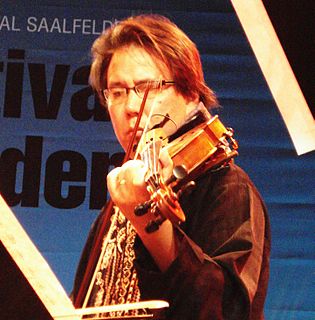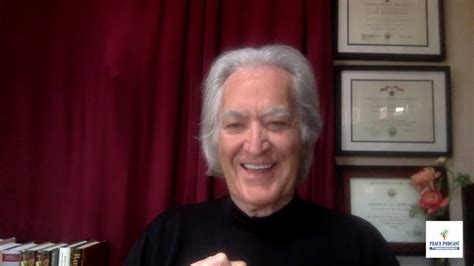A Quote by Eyvind Kang
I love the appropriateness of making a dogmatic statement. I support that, but that is a different level of the individual consciousness than was the source of our music.
Related Quotes
There can be no more intimate and elemental part of the individual than his or her own consciousness. At the deepest level, our consciousness is what we are - to the extent that if we are not sovereign over our own consciousness then we cannot in any meaningful sense be sovereign over anything else either.
The cognitive structure does not generate consciousness; it simply reflects it; and in the process limits and embellishes it. In a fundamental sense, consciousness is the source of our awareness. In other words, consciousness is not merely awareness as manifest in different forms but it is also what makes awareness possible.
In fact, everything that emanates from source emanates from a source of well-being. When we take on this ego consciousness, when we take on hate rather than love in our hearts, we create all of this divisiveness, and we create all of the problems, the struggles, the difficulties, the diseases, the poverty.
I think that everything in the world around us is a reflection of what is going on inside of us. So each of us as an individual creates a life - we draw to us certain people and events and circumstances that reflect what's going on inside of us, so we can literally look at our life and see a mirror of our own consciousness. And if that's true on an individual level, it's also true that what's going on in the world in a bigger way is a reflection of the collective consciousness.
The relationship that people have with music is entirely different now. People spend much less time experiencing music on a one on one level than they could have if they were a part of a different generation. I find this ironic since we have so many tools at our finger tips to be engaged by media in all forms.
To ask about the 'source' of rights or morals assumes an erreous conclusion. To ask about the source of morals is to assume that such a source exists. As if it existed outside of human constructed systems. The 'source' is the human ability to learn from experience and to entrench rights in our laws and in our consciousness. Our rights come from our long history of wrongs.
Samadhi is the journey from individual to collective consciousness. The steps of Samadhi are the steps towards reaching the collective consciousness. In meditation, the more we radiate love, compassion, peace, harmony and tranquility, the more is our contribution towards the collective consciousness. The more we positively contribute towards the collective consciousness the more is our progress in Samadhi.
Tamed as it may be, sexuality remains one of the demonic forces in human consciousness - pushing us at intervals close to taboo and dangerous desires, which range from the impulse to commit sudden arbitrary violence upon another person to the voluptuous yearning for the extinction of one's consciousness, for death itself. Even on the level of simple physical sensation and mood, making love surely resembles having an epileptic fit at least as much as, if not more than, it does eating a meal or conversing with someone.







































